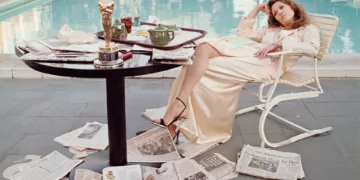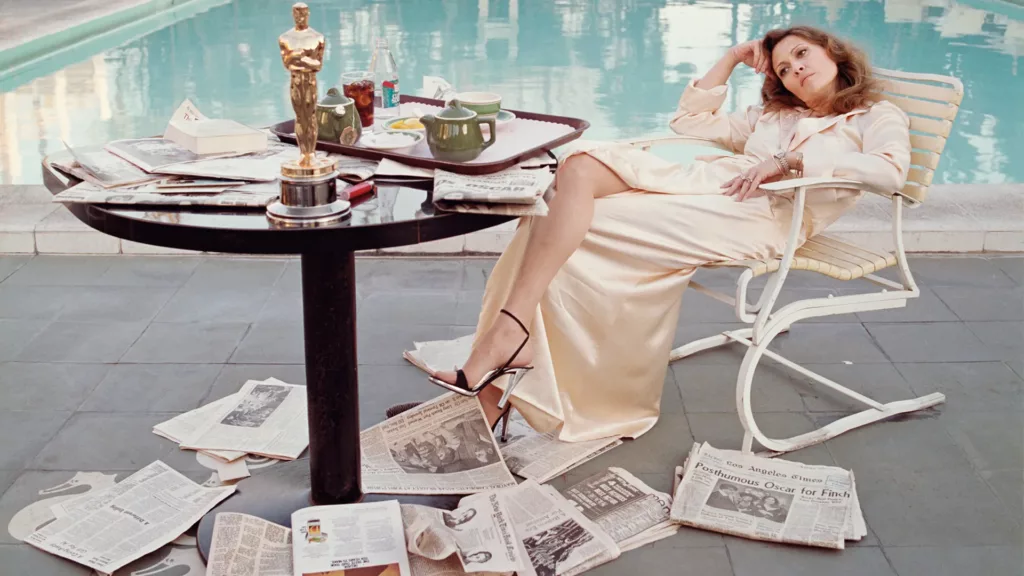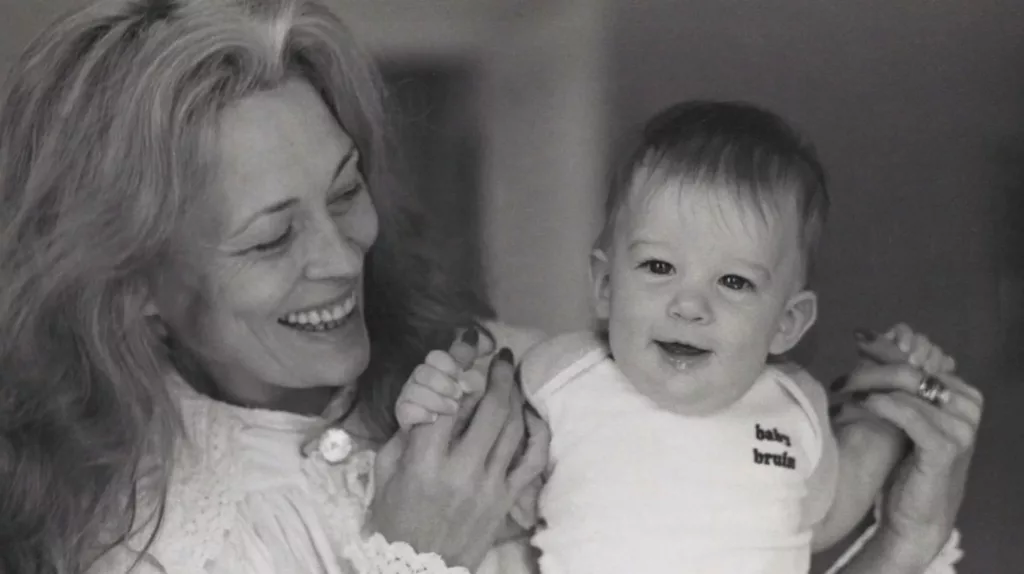The documentary Faye offers audiences an intimate look at one of cinema’s greats, Faye Dunaway. Viewers are treated to Dunaway’s candid recollection of her storied journey from theater actress to silver screen icon. Born Dorothy Faye, she grew up dreaming not simply of fame but of portraying complex characters that ignited cultural conversations. Her humble beginnings in Florida and formative years in theater under Elia Kazan set the stage for a career highlighting fierce female roles.
Dunaway delivers compelling reflections on monumental films that defined eras such as Bonnie and Clyde, Network, and Chinatown. She shares, with humor, the challenges of working with esteemed directors like Arthur Penn and Roman Polanski.
In one amusing anecdote, Polanski literally grabbed a stray hair on set, prompting an expletive outburst from his star. Dunaway also offers a frank discussion on private struggles with bipolar disorder and alcoholism and how the intensity of roles like Joan Crawford impacted her mental health. Through it all shines her brilliance at disappearing into unforgettable characters that pushed social boundaries.
Film historians provide insightful context on the cultural significance of her work during watershed periods for women’s liberation and Hollywood. Co-stars like Mickey Rourke and Sharon Stone offer personal perspective on Dunaway’s ferocity as an artist. Throughout, the documentary captures her infectious passion and pride for her chosen profession. For anyone with admiration for Dunaway’s extraordinary talent and journey, Faye offers a compelling behind-the-scenes look at a living legend.
Breaking Barriers: Faye Dunaway’s Celebrated Career
Truly, Faye Dunaway packed a lot into her storied career. From her early days honing her craft on the New York stage to iconic roles that pushed boundaries, she left an indelible mark. The documentary charts this journey seamlessly.
We learn Dunaway first found a passion for acting through high school plays like Harvey. This led to training under theater luminary Elia Kazan. She exploded onto the big screen in 1967 with The Happening, thanks to producer Sam Spiegel. But it was Bonnie and Clyde two years later that cemented her status, earning her a Best Supporting Actress Oscar nod.
Dunaway owned the 1970s, starring in unforgettable films like The Thomas Crown Affair and Network, for which she won the top prize. She took on complex, controversial characters during watershed periods. Network saw her play an unapologetically ambitious woman amid women’s liberation. History recalled how Chinatown co-star Jack Nicholson slapped her in their iconic scene.
Despite acclaim, challenging roles also took their toll. She candidly discusses private battles with bipolar disorder and alcoholism. Mommie Dearest faced backlash but rediscovered fame as a cult favorite. The documentary effectively shows both the professional highs and personal lows Dunaway experienced.
Later films saw varied success. But she remained devoted to her craft, also directing Master Class briefly. Photography by her husband, Terry O’Neill, offered insight into her personal life at different stages. Dunaway’s son, Liam, helps provide retrospective perspective through treasured photos.
The documentary is a front-row seat to both Dunaway’s illustrious decades in Hollywood and her relentless passion that continues to inspire new generations of actors today. It celebrates a true icon who broke barriers and changed the industry forever through her boundary-pushing roles.
Warts and All: Dunaway’s Raw Revelations
This documentary lifts the veil on Faye Dunaway in a refreshingly honest way. She pulls no punches while discussing personal demons that have long haunted her. Growing up, her father’s alcoholism cast a shadow, with Dunaway admitting to “inheriting” that affliction herself. Family strife left deep scars, evident in her fleeting relationships.
But the heartfelt exchanges with Liam lend perspective. Turning pages together in a treasured scrapbook, favorite memories jump off fading photos. Little gestures remind us that, through turbulence, love persevered. Their bond grounds us in Dunaway’s humanity beyond headlines.
Just as bravely, she confronts bipolar disorder, a mental illness generating more understanding today. Yet in her prime, “difficulty” lingered like an epithet. Medication and rehabilitation saved her; she spared no details crediting such programs. Self-reflection, this frank, fosters connection with any battling inner demons privately.
It takes resolve to address vulnerabilities candidly in front of cameras. But Dunaway seems liberated, laying bare life’s complexity. Hers was no fairytale ascent in Hollywood, yet her gifts to audiences remain. Trading perfection for progression, she moves discussion where it’s most needed: on representation and compassion.
This proves why documentaries enrich when daring to embrace messiness rather than concealing it. With empathy and resilience, Dunaway turns a mirror on herself so others see they’re not alone. Her revelations embolden her by reminding her that strength comes from overcoming, not from never faltering along the way.
Exploring Faye’s World: Bouzereau’s Cinematic Approach
Steeped in decades of documentary filmmaking, Laurent Bouzereau surely wields his tools. But does he take them to their full potential? This film immerses us in Faye Dunaway’s life, yet how deep does it dig?
Bouzereau stockpiles star-studded talking heads and iconic scenes from Dunaway’s roles. But he rarely lingers to dissect them meaningfully. Details like her character-building process disappear. And discussions stay atopic—more “how brilliant she acted” than “why she connected to this part.”
Archival interviews likewise rehash triumphs rather than probing her craft. As engaging as Dunaway remains, you wish for insight beyond surface stories. Bouzereau commands engaging documentary form. But here it functions largely as an informative recap, not an analytical journey.
Still, he risks honesty by including criticism of Dunaway’s difficult reputation. And delving into bipolar disorder’s impact feels like an important step. But Candor lacks follow-through; he glosses over controversies like her slapping incident.
Ultimately, it’s a respectful tribute, not a fearless deconstruction. Bouzereau avoids true critique, perhaps to retain access and approval. His talent warrants bolder directorial choices. With nuanced discussion and intimate footage, imagine how much depth he could have brought to Faye Dunaway and her timeless art. This film celebrates an icon well. But its techniques permit only a superficial exploration of her.
Exploring Beyond the Surface
While Faye shines a light on a luminary, certain areas remain in shadow. Dunaway’s riveting performances and resilient spirit deserve the highest praise. Yet does the film leave some life chapters and artistic nuances only lightly tread upon?
Bouzereau brushes past professional setbacks like her playfire. We hear of relationship turmoil in bits, but not its impacts. Flashpoints like working with Bette Davis escape close study. Her directorial attempt vanishes after a brief mention. Doubtless, some scenes felt too private to share.
But peeking deeper could have peeled back layers of her artistry. What inspired specific roles and their fiery intensities? How did her struggles shape certain choices or her process altogether? We see skilled technical work but miss chances to dissect its meaning.
Her pain brought brilliant creations to screens. But understanding its origins and lifelong effects feels unfinished. Discussing only successes risks contouring a two-dimensional portrait. A more searching emotional and psychological analysis could have offered a fuller perspective.
This film celebrates a pioneer, yet celebration alone risks surface gloss. With empathy and insight, might it have illuminated further how personal demons so powerfully fueled creative fires? A few more probing discussions might have revealed still more of the woman behind the woman behind the roles. A complex figure like Faye deserves penetrating insight into all she withheld and everything she boldly put on display.
Her life contained multiplicities beyond what fit a single film. Perhaps further explorations could continue unveiling layers of this timeless and continually fascinating artist.
Reflecting on a Remarkable Career
This documentary presents a revealing look at one of cinema’s greats. Faye shines a light on Dunaway’s impressive journey in vivid detail. From her early passion for acting to iconic roles that pushed boundaries, we view a career as hard-won through talent and perseverance.
Bouzereau crafts an intimate portrait using Dunaway’s candid recollections. We feel her artistic fire in bringing unforgettable characters to screens. Her trailblazing work left marks, for better or worse, leaving an indelible mark. Watching, we better understand what drove her and the challenges she overcame.
While some areas remained unexplored, this film succeeds in its primary aim. It celebrates Dunaway, the artist, through her own insightful lens. We see past public personas in the complex woman within. Her vulnerability in discussing struggles adds poignancy. This iconic star’s stories enthralled, as did the impacts of her groundbreaking efforts.
This documentary ensures Dunaway’s legacy will endure. Younger generations can appreciate her pioneering spirit anew. For all film lovers, it proves a compelling tribute to a giant of her craft. Her admiration for cinema seems to be matched only by ours for her. Through this illuminating work, Faye Dunaway’s light will continue to inspire those who carry the torch of her remarkable art form forward.
The Review
Faye
While not without flaws, Faye offers a compelling glimpse into a cinema legend's life and career through her own illuminating words. Bouzereau crafts an affectionate tribute that inspires renewed appreciation for Dunaway's indelible contributions to her artistic medium.
PROS
- Insightful personal reflections and stories from Faye Dunaway herself
- Revelations about her private struggles and perseverance as an artist
- Engaging selection of archival clips that highlight her iconic performances
- Intimate production involving her son that helps provide emotional context
CONS
- Doesn't delve deeply enough into some career and relationship challenges.
- Overreliance on talking heads that don't offer much new analysis
- Lacks critical interpretation of Dunaway's performances and film legacies


















































